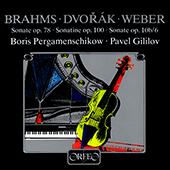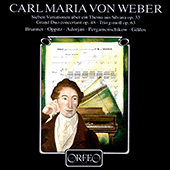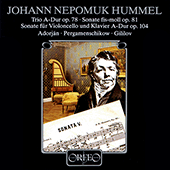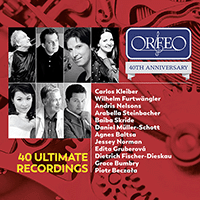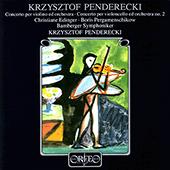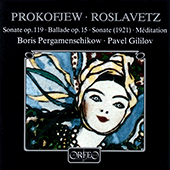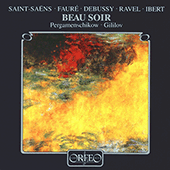Boris Pergamenščikov
Boris Pergamenschikow, who died prematurely of cancer, was best known in the West as a committed and evangelical chamber musician, although he also made a name as a soloist, albeit under the restrictions of travel imposed by the Soviet regime. His father was an orchestral cellist and his mother a piano accompanist; at six he was sent to cellist Emmanuel Fischmann in Leningrad, later enrolling at the Leningrad Conservatory where he learnt cello, piano and composition and, by all accounts, was equally gifted in all three activities. Aged eighteen Pergamenschikow finally made the decision to concentrate on cello playing and gave his formal Leningrad début playing Boccherini, Tchaikovsky and some of his own compositions. A string of competition successes followed and he emigrated to Cologne in 1977, following a large number of invitations to play in the West. Although he gave two successful concerts in New York in 1982 and 1984, it was noted by critics at the time that his performances were perhaps not as enthusiastically received as they deserved. Nonetheless, he soon became established as a solo and chamber musician, notably performing to great acclaim at the Wigmore Hall in London with András Schiff in the 1990s.
Despite his shortened career, Pergamenschikow left a significant legacy of recordings including contemporary music—his 1997 recording of Dutilleux’s Tout un monde lontain won him a Diapason d’Or award. His rich tone, which was considered by many to be particularly searching and epitomised his commitment to the service of music, is captured effectively on disc. What all his recordings reveal is a powerful modern sound, typical of post-war artists from the former USSR. Equally typical is a more or less unmodified style in all repertoire; thus, his Bach (represented here by the Cello Suite No. 1, recorded in 1998) does not attempt any obvious kind of historical approach, although the playing is clean, with lively tempi and some ornamentation.
In the Schumann (1993) Pergamenschikow is more flamboyant, his heroic style complementing the free textures, whilst in the Beethoven and Fauré trios (1999) he blends well in the ensemble, demonstrating generosity and intelligence as a chamber player. Comparing his chosen instrument to the violin, he once commented ‘[…] we are sometimes kings, sometimes peasants; we have to do everything between extremes.’
© Naxos Rights International Ltd. — David Milsom (A–Z of String Players, Naxos 8.558081-84)








